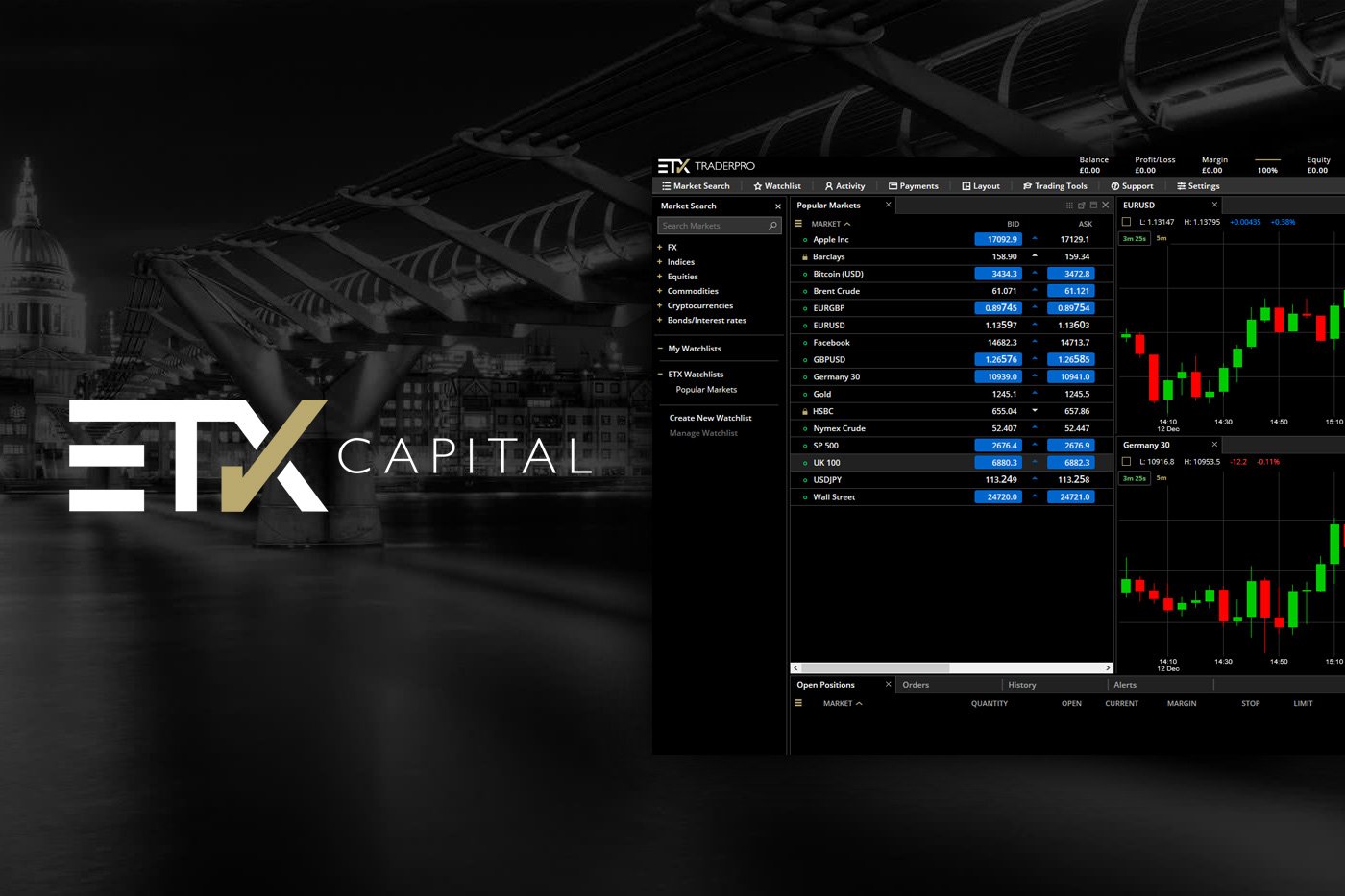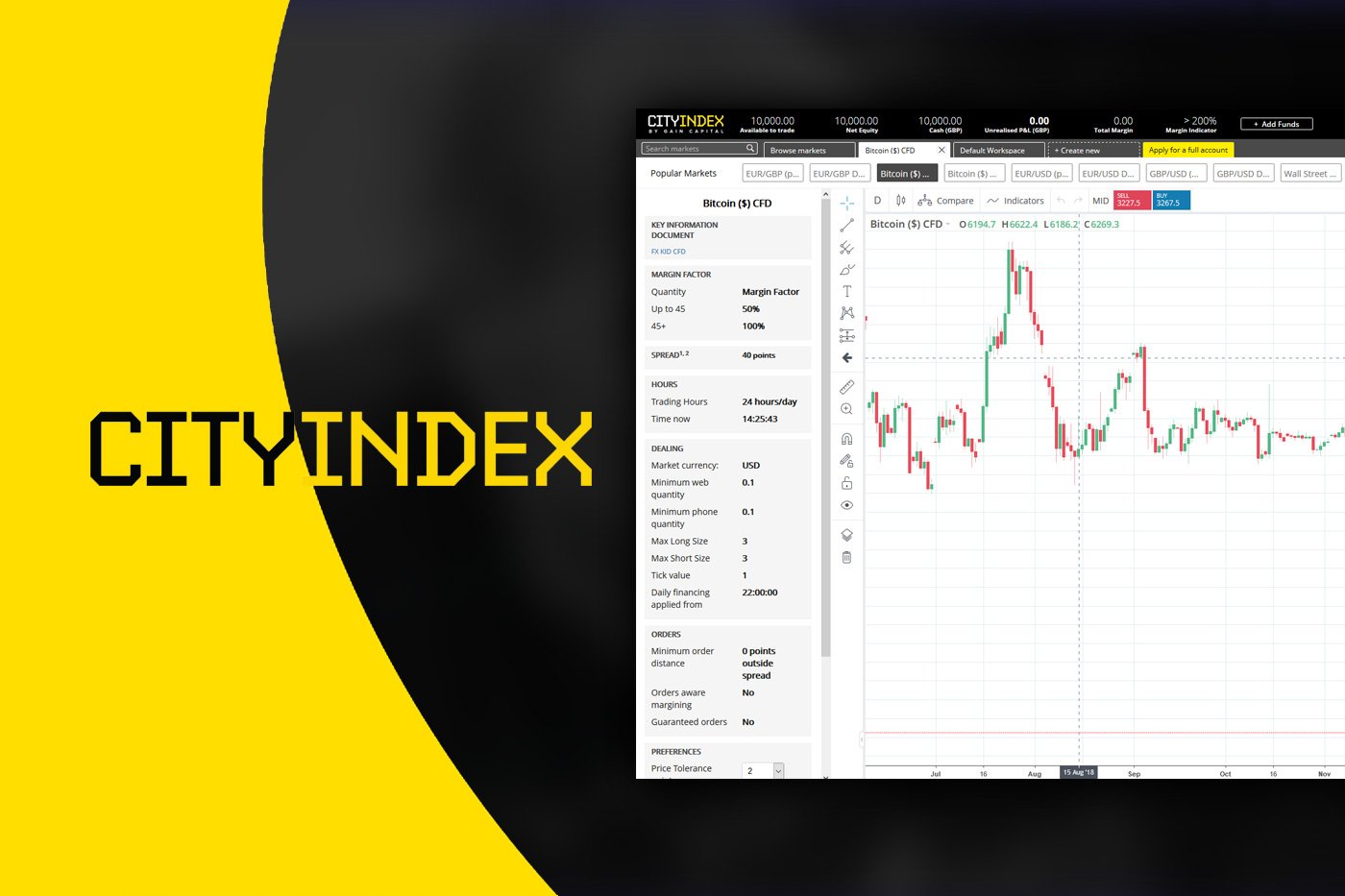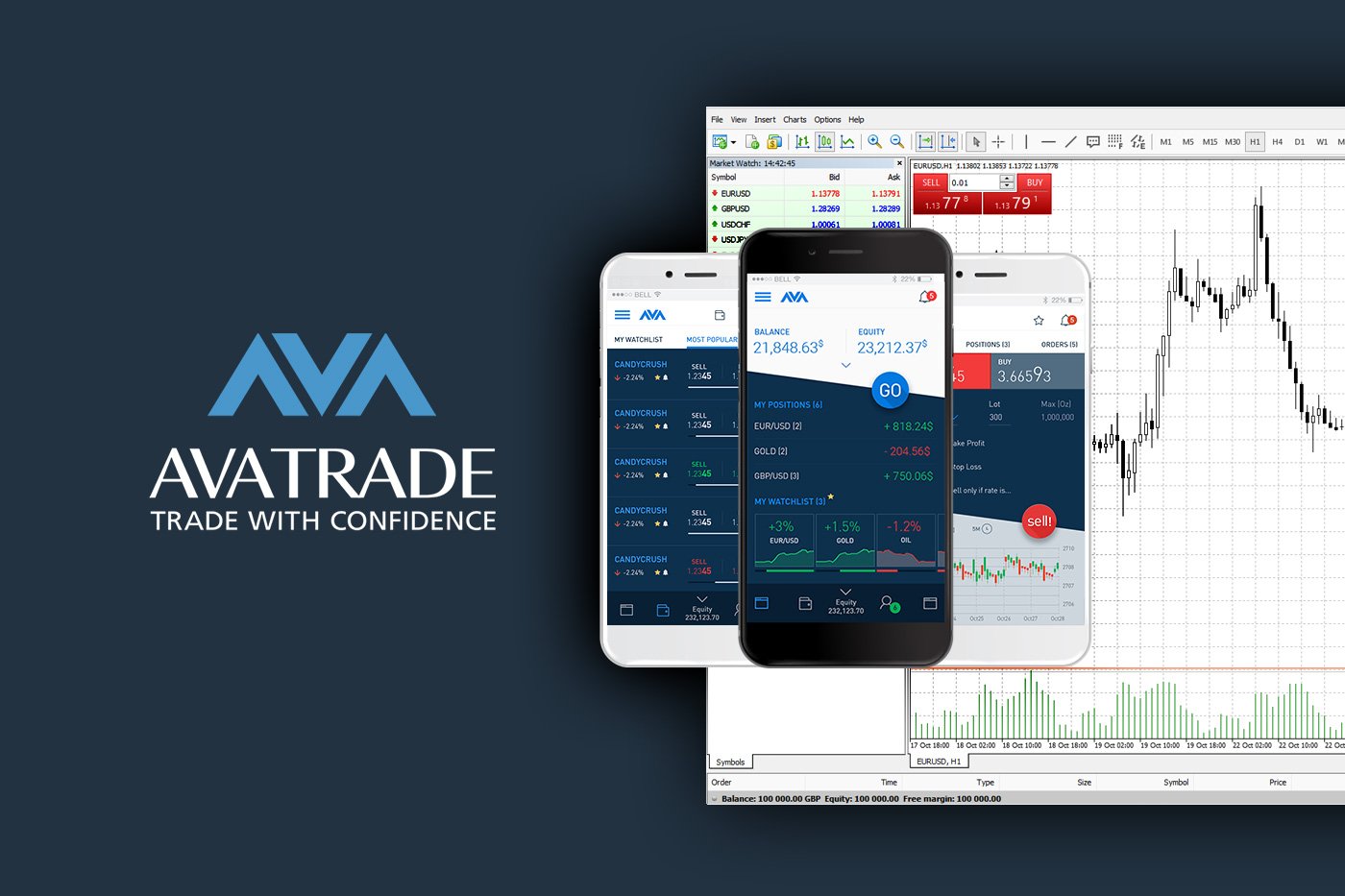With the growth of cryptocurrency, many people want to get into the field and do what they can to make a profit. In addition to the option of actually buying crypto and holding it in a wallet as an investment, there are various ways to trade or invest in cryptocurrency without actually owning it.
While the most common is via a CFD (contract for difference), spread betting is another option. In either case, you do not actually have to own the cryptocurrency to make a profit from it, but there is still risk involved.

What Is Spread Betting?
Spread betting is a type of derivative strategy, meaning that you do not actually own the asset that is underlying the bet. Instead, you speculate based on whether you think the price of the asset will fall or rise.
When looking at a spread bet, you will see two price quotes. One of these is the ask price, meaning the price that you can buy the crypto bet at. The other is the bid price, which is the price that you can sell at.
As with other types of derivatives, the term “spread” refers to the difference between the bid and ask prices. This spread is where brokers make their profits, allowing them to avoid charging any commissions.
With spread betting, you choose the bid price if you think the market for a given cryptocurrency will rise or opt for the ask price if you think that cryptocurrency’s market will fall. Spread betting also includes leverage, going short or long, and tax benefits. There are also numerous markets available for spread betting in addition to cryptocurrency and stocks.
How Bitcoin Spread Betting Works
- With spread betting, you start by choosing the cryptocurrency you want to bet on.
- From there, you decide to go long if you think the price of the asset will rise or go short if you believe it will fall.
- You then decide the amount of capital you wish to invest for every point of movement on the market, known as the stake.
- With spread betting, you can take additional steps to manage risk, such as take-profit levels and stop-loss levels.
- You then place the trade. It is typically possible to close crypto spread betting trades at any moment regardless of the take-profit and stop-loss levels you chose.
Like all other types of spread betting, crypto spread bets have a set timescale, after which they will automatically end, provided you do not manually end the bet sooner than this.
Some will expire within days, while others will last months. To calculate your profit or loss, subtract the settlement price from the opening price, then multiply the result by the stake.

Read: What is Bitcoin? Our Complete Guide
When choosing your spread bet, it is possible to bet on a specific cryptocurrency, such as Bitcoin, or a currency pair. If the bet is on a particular cryptocurrency, it is based on the price of that crypto. For example, you are likely to find spread betting choices for XBT/GBP, XBT/EUR, XBT/USD, XBT/CNH, and XBT/JPY.
It is also important to note that most spread betting involves trading on leverage. This lets you increase your market exposure, but it also increases your level of risk. Essentially, you deposit a small percentage of the overall value of your trade.
Margins are the quantity of money your broker requires you to keep in your account before opening a position. If the margin requirement is 10 percent, then you need to have 10 percent of your trade’s value in your account before you open the position.
In most cases, brokers require crypto spread betters to have a significant amount in their accounts because the leverage magnifies both profits and losses. In other words, you will need enough in your account to provide protection against negative market moments.
The margin level tends to be higher for more volatile markets, so expect higher margins for crypto spread betting than you would find with stock spread betting.
You also need to watch out for margin calls, which are warnings that the amount of capital within your brokerage account is below the minimum you need for your position to stay open. This can lead to automatically closed trades.
Managing Risk in Cryptocurrency Spread Betting
Spread betting has a very high risk level, particularly compared to other types of traditional trading. In fact, any crypto spread betting broker will have a risk warning on their website letting you know that these investments are incredibly risky and suggesting caution.
Stop-loss orders are one of the most important tools for mitigating risk when it comes to cryptocurrency spread betting. Stop-loss orders will automatically close your trade if it is losing and the market goes past your set price level.
Standard stop-loss orders will close the trade while at the best price available after reaching that stop value. In cases of high market volatility, your trade may close on a level that is worse than your stop trigger.
By contrast, guaranteed stop-loss orders guarantee that your trade will close at the specific value you set, no matter what the underlying market conditions are. To make up for this extra reduction in risk, most brokers charge an additional fee for guaranteed stop-loss orders.

You can also use spread betting arbitrage to minimize the risk. Arbitrage is possible if the price of the same cryptocurrency (or another instrument) varies between different companies or different markets.
This type of variation can let you sell high and buy low at the same time. Essentially, arbitrage lets you take advantage of inefficiencies in the market to reduce your risk. Unfortunately, the plethora of information available and enhanced communication online, including between brokers, makes arbitrage opportunities extremely limited.
If you do find an opportunity to use arbitrage with cryptocurrency spread betting, you will bet on the spread from two separate brokers. You would benefit if the bottom part of one broker’s spread is higher than the top of another broker’s spread.
Essentially, you would buy low from company A and then sell high with company B. However, this method is highly advanced. If you do not complete your transactions perfectly, you can lose a great deal of money.
How Did Spread Betting Start?
Since crypto spread betting is quite different than other types of cryptocurrency investing, many people want to know more about its origins. Charles K. McNeil, who was a math teacher, then securities analyst, and then bookmaker, was credited with the creation of spread betting during the 1940s in Chicago.
Despite this early start, spread betting did not enter professional finance until about 30 years later. The first spread betting firm was IG Index, which investment banker Stuart Wheeler founded in 1974 in London.
It began with spread betting on gold, marking an easier way for people to speculate on the asset. At the time, it was difficult to invest in gold, so this was a welcome option.
Comparing Spread Betting to CFDs
CFDs are the other common form of trading cryptocurrencies and other assets without actually owning the underlying asset. As such, CFDs and spread betting are frequently compared with each other.
Both methods of investing in cryptocurrency involve high levels of risk as well as potentially high rewards to match due to their use of margin and leverage. Another similarity between spread betting and CFDs for cryptocurrencies include the ability to go short.
One of the biggest differences between spread betting and CFDs is taxation, although both are tax-efficient. In either case, you do not own the underlying cryptocurrency so will not have to pay a stamp duty.
There is a capital gains tax with CFDs, but spread betting is exempt from this tax in the United Kingdom. You are also more likely to pay commissions for executing crypto CFDs than crypto spread betting, although this varies by platform.
Additionally, many more jurisdictions place restrictions or bans on spread betting than on CFDs. This is why most spread betting brokers will only be open to those in the UK or Ireland, with some exceptions. By contrast, you can invest in cryptocurrency CFDs in most jurisdictions.
Jurisdictions Where Spread Betting Is Legal or Illegal
There is a very high risk associated with spread betting. Because of this, any type of spread betting is illegal in many jurisdictions. While spread betting is legal in the United Kingdom, it is notably illegal in the United States.
The illegality of cryptocurrency spread betting in the United States comes down to the government considering it to be online gambling. In 2006, the Unlawful Internet Gambling Enforcement Act made online gambling illegal, taking spread betting with it.
Additionally, the illegality of spread betting within the United States is influenced by circumstantial evidence that lobbying groups worked hard to keep it out of the U.S. These lobbyists worked for financial-market exchanges and similar interests who feared that those exchanges would lose business.
Yet another theory behind the stance on spread betting in the U.S. is that the government would want to charge taxes on the trading, but it would be too challenging thanks to the nature of spread betting.
Some also argue that options trading allows for some similar benefits to spread betting, and as such, crypto spread betting is not necessary in the U.S.
Contracts for Difference (CFD) Brokers
If you are outside the UK and interested in CFD Brokers, then take a look at our comprehensive collection of reviews for these types of sites.
- Plus500
- AVATrade
- IQ Option
- 24option
- ExpertOption
- Vantage FX
- Forex.com
- Pepperstone
- ETX Capital
- NordFX
- City Index
- Binary.com
- XTB
- FXTM
- ATFX
Nevertheless, the United Kingdom has no laws against spread betting, including on bitcoin and other cryptocurrency. As such, many of the brokers that offer spread betting have their headquarters within the U.K.
Although spread betting is still legal in the European Union, there are very strict regulations in place courtesy of the European Securities and Markets Authority. The EU placed additional restrictions in 2018 as a way to protect investors. The most notable restriction limits the amount of leverage that crypto spread betters can use.
UK Tax Exemption
One of the many benefits of cryptocurrency spread betting comes from the tax advantages. In the United Kingdom, which is one of the most popular locations for spread betting of any type, profits from this type of investment are not taxed.
That lack of taxation comes from the fact that betting profits are not taxed within the UK and spread betting is considered to be a form of betting. The important thing to remember is that it is the current UK law that profits from crypto spread betting do not get taxed.
This may change at some point. Additionally, the tax exemption goes in the other direction, as well. If you lose money on crypto spread betting, you will not get a tax deduction like you would with most stock-related losses.
Other Pros and Cons of Spread Betting
One of the biggest advantages of crypto spread betting compared to other methods of investment is the ability to trade using margin. This lets you increase your position in comparison to the amount you have available to invest, which can increase the potential for profits.
The fact that spread betting has multiple methods in place to limit risk is also beneficial, such as the previously mentioned stop-losses. Spread betting is also typically free from commissions and available to trade with extended hours, sometimes 24/7 depending on the broker.
Crypto spread betting is also typically available on the same platforms as other types of spread betting and includes a great deal of training.
The biggest cautions regarding crypto spread betting are related to the positives. The inclusion of leverage and margins, for example, can be a negative for some people since the possibility of a higher reward also comes with the chance of a higher loss. The fact that spread betting is tax-free means you will not be able to deduct losses.
The lack of commissions means that some brokers charge wide spreads. Of course, you can minimize all these factors by selecting the right broker and using risk mitigation strategies.
Top Crypto Spread Betting Companies
While there are many companies that offer spread betting in general, a smaller number of these offer cryptocurrency spread betting. Here are some of the top companies in the field.
Risk Warning : Spread bets and CFDs are complex instruments and come with a high risk of losing money rapidly due to leverage. 67% of retail investors lose money when trading spread bets and CFDs. You should consider whether you understand how spread bets and CFDs work and whether you can afford to take the high risk of losing your money.
ETX Capital
ETX Capital supports cryptocurrency spread betting with Bitcoin, Ethereum, Bitcoin Cash, Ripple, and Litecoin. The Bitcoin daily spread is 50 pips (variable) while the Ethereum daily spread is 5 pips (variable), with each offering leverage of 1:2. ETX Capital is also regulated by the FCA.

This broker stands out with its support via FAQs in more than 15 languages and live customer service in six languages, tight spreads, and range of platforms, including mobile applications. ETX Capital also makes client fund safety a priority. Additionally, ETX Capital provides educational materials, including those specific to spread betting, although these materials are not as extensive as those from IG.
Read our Full Indepth Review of ETX Capital
City Index
City Index is a global provider for CFD trading, spread betting, and forex trading. It has more than 30 years of experience and a reputation for delivering reliable and fast execution. This London-based provider was established in 1983 in the UK and is a world leader for spread betting, as well as CFD and forex trading. In addition to offering access to more than 12,000 markets, including Cryptocurrency, shares, forex, indices, and commodities.

Read our Full Indepth Review of City Index
AVA Trade
AvaTrade is a well established broker that has provided online trading since 2006. Its values are fairness and integrity, uncompromising self-evaluation, customer service, and constant innovation. AvaTrade aims to appeal to traders of all skill levels and to offer adaptable trading platforms.
AvaTrade has more than 200,000 registered clients who complete 2 million trades monthly. The trading volumes are about £60 billion monthly, and that figure is growing. This broker has around-the-clock multilingual support and a range of platform options.

For customers in the United Kingdom or Ireland, AvaTrade also has support for spread betting. This has some tax benefits for UK residents when compared with CFDs.
Read our Full Indepth Review of AVATrade
Spreadex
Spreadex opened in 1999 and has more than 60,000 account holders. This broker also provides access to more than 10,000 global markets in addition to cryptocurrencies. It offers an interest-free credit limit and highly rated customer service. Crypto spread betting from Spreadex includes Bitcoin, Bitcoin Cash, Ethereum, Ripple, and Litecoin. The variable daily spreads are 80 pips for Bitcoin and 7 pips for Ethereum, each with a leverage of 1:2.

Educational tools from Spreadex include a video training center to show account holders how to spread bet with crypto. However, most of these videos focus on using the platform, not learning about spread betting or cryptocurrencies. As such, those who choose this platform will want to do some additional research on crypto spread betting tips before using the platform.
Risk Warning: Spread bets and CFDs are complex instruments and come with a high risk of losing money rapidly due to leverage. 71% of retail investors lose money when trading spread bets and CFDs with this provider.
IG
IG was founded in 1974, and as mentioned earlier, it was the first major broker to offer spread betting. As such, IG is commonly considered the one of the top choices for any type of spread betting, including cryptocurrency.
It is regulated and authorized by the FCA and makes the security of client funds a priority. IG lists several benefits of spread betting cryptocurrencies with itself on its website. These include improved liquidity, the lack of requirement for an exchange account, tax-free trading, and the ability to go short or long.
IG offers trading with Bitcoin, Bitcoin Cash, Ethereum, Ripple, Litecoin, NEO, Stellar, or EOS. The broker has a Bitcoin daily spread of 6 pips (variable) with a leverage of 1:2 and a Bitcoin daily spread of 50 pips (also variable) with the same leverage.

This platform also stands out with its vast offerings in terms of educational tools. Because of the risk of associated with crypto spread betting, these educational materials are particularly helpful, maximizing your knowledge so you can minimize risk.
InterTrader
InterTrader has earned many awards over the years and offers cryptocurrency spread betting for either Bitcoin or Ethereum. The Ethereum daily spread is 12 pips while that of Bitcoin is 100 pips, with both being variable. As with other crypto spread betting brokers, the leverage is 1:2.

InterTrader stands out with its 100 percent market-neutral execution, meaning that it has no financial interest in positions that clients make. InterTrader is also regulated and authorized by the FCA as well as the Gibraltar Financial Services Commission.
Client funds are segregated, and it offers webinars, resources, and trading education tools. The education center from InterTrader is incredibly thorough, including multipart courses, live trading sessions, glossaries, key trading topics, and more.






2 Comments
Good article but descriptions ate round the wrong way at the top.
You can buy at the offer (or ask) price, and sell at the bid price
Thanks for pointing that out Stuart, Have updated the article 🙂